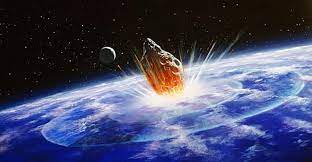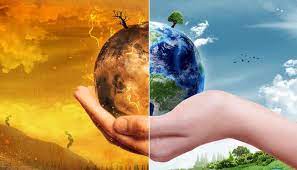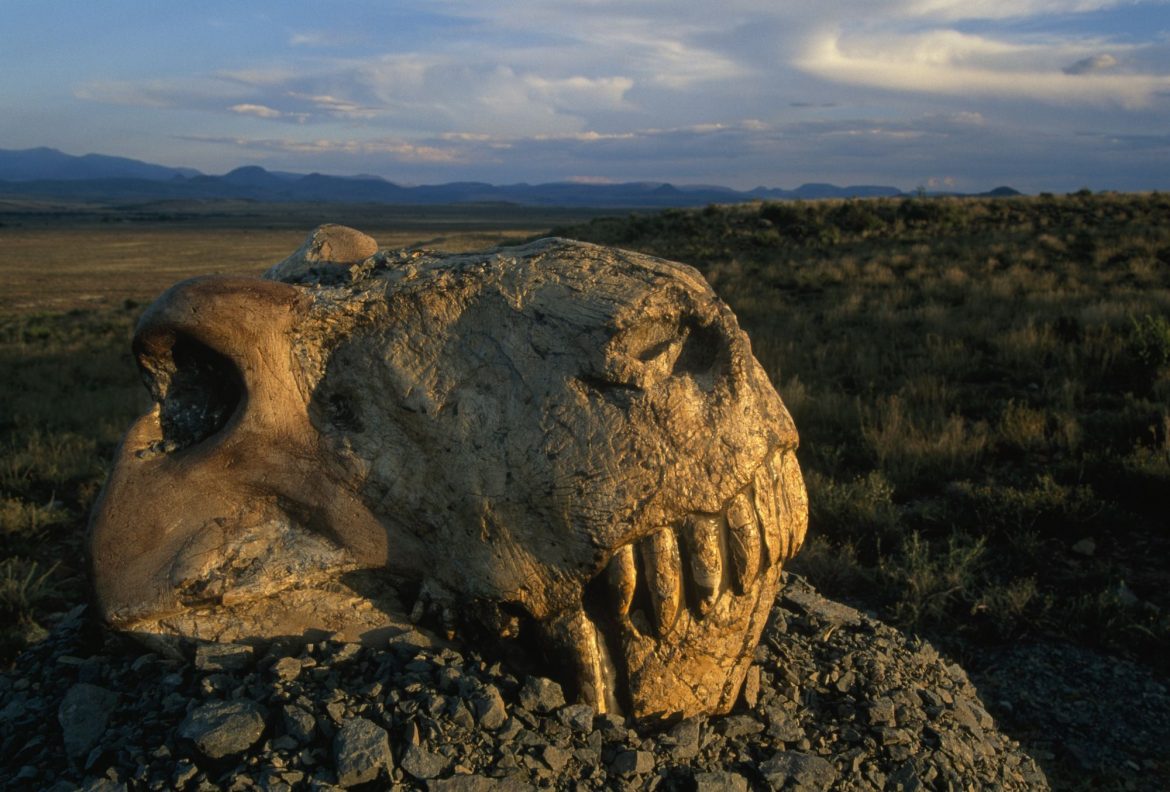The American media, including the progressive media and Steven Pinkerish academics, are promoting the idea that most life on Earth has been wiped out many times before—by asteroids, comets or super-volcanoes. The best denial of human destructiveness is maintaining that nature is also destructive.
A study by scientists at America’s Smithsonian Institute and the University of Kansas, mapped out all of the Earth’s extinction events from the past 500 million years. They are 99% sure that there has been an extinction event on average every 27 million years–much more often and regularly than previously thought.
An extinction event is defined as a sharp decrease in the diversity and abundance of macroscopic life, that is, life that can be seen without a microscope. As MIT’s Technology Review reported, “Something of enormous destructive power happens every 26 or 27 million years,” wiping out a significant portion of animals and plants on Earth.

The study was largely treated as a joke on American talk shows, with people saying things like, “eleven million years ago a ten mile wide asteroid crashed into New Mexico, wiping out half the species at the time, so that still leaves 16 million years you can continue to watch our show.”
We are in the midst of a man-made extinction event. At the present rate of annihilation at the hands of the Earth’s only sentient species, half of all animals and plants on Earth will be wiped out by mid-century. This largely ignored fact, in favor of anthropocentric “climate crisis,” and hubristic “Anthropocene Age,” cuts to the heart of the relationship between humans and nature. If one lets it.
How do you view humankind’s place in nature, and the universe? The vast majority of people in the West see nature as hostile and the cosmos as essentially chaotic and indifferent to human life. We have also been conditioned to view humans as specks on a speck in space, no more significant in the scheme of things than ants are to us.
Is science responsible for this wrongheaded notion? Science, as important and powerful a tool as it is in human life, is essentially a reductionistic enterprise, based on ‘objectivity’ (read separation) and reason. To the scientific mind, the universe operates according to predetermined laws, laid down in the moments after the Big Bang, determined by chance.
So the more destructive humans become, the more science is used to tell us not to worry — the universe is destructive too. Even more cunningly, scientists echo New Agers in saying, “We’re not actually separate.” (No, but as humans we habitually separate, and are therefore existentially alienated.)
To gain insight into what used to be called ‘the riddle of man,’ cease fragmenting the earth and ourselves, and preserve what’s left of the Earth’s wild creatures and places, we have to make a clear distinction between natural creative destruction, and pointless human destructiveness, which has no precedent in nature.
Poverty, war and man-made extinction of the animals with which we evolved and share the earth are closely interrelated. And when we kill animals thoughtlessly, selfishly and wantonly, for food or sport, we are contributing to the destruction of future generations. We are saying to our children, ‘We don’t care about you, and the world you inherit; we only care about our own survival, comfort and pleasure.’
The same self-centeredness and brutishness that kills animals needlessly upholds the divide between the rich and poor all over the world. ‘Animals were put on Earth to be exploited by humans,’ and ‘the poor will always be with us,’ are two sides of the same old brainless coin.
We are a sentient species, meaning that we have awareness of ourselves and what we’re doing. However our unintelligence as a sentient species is proven by the general indifference to wiping out half the animals on Earth, and destroying the viability of the oceans and atmosphere at an accelerating rate, and then denying or minimizing it, as Steven Pinker and his ilk do, or rationalizing it by saying that the universe is destructive too.

Africa, the birthplace of ancient and modern humans, contains the last great herds of animals on Earth. Early Homo sapiens dwindled to only a few thousand people, perhaps due to a natural extinction event like a supervolcano. There was a breakthrough, a Cognitive Revolution, which gave humans the powers to accrue knowledge and manipulate nature. All nearly 8 billion people now alive descended from those ten or so thousand people.
Another breakthrough, a fully conscious Insight Revolution, which is essentially spiritual in nature, must occur for humans to cease being a destructive creature and grow to our full potential as human beings.
Changing the basic, disastrous course of man will require a revolution in human consciousness unlike anything the world has ever seen. It sure doesn’t look like it will occur in our age, and if not, I pity the children born today.
Though we’re too close to the intensifying crisis of human consciousness that’s been 100,000 years in the making, we still have to ask: Is this darkest hour before the dawn of a new human being?
Martin LeFevre
lefevremartin77 at gmail.com

